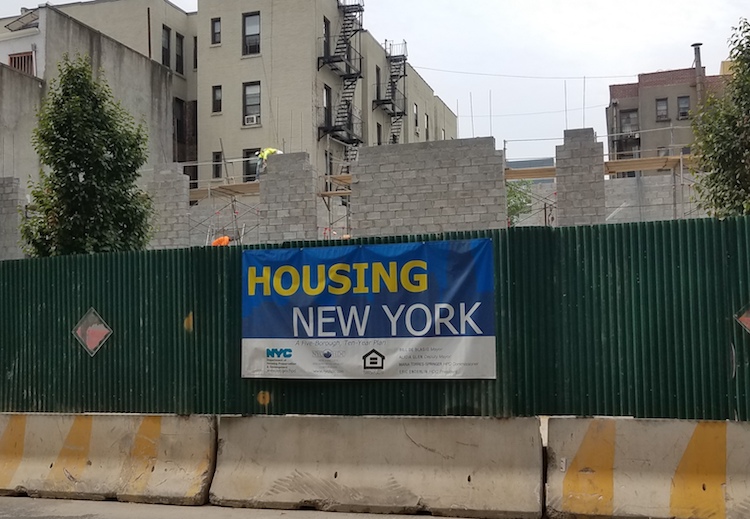
Jarrett Murphy
At last count, Mayor de Blasio’s housing plan—which is due to run into 2026—was a little less than halfway done, with 140,000 units financed.New York City is closing fast on the next rent due date, May 1, with it unclear how many tenants will pay their landlords in full—a month after the last anxiety-filled deadline, but still with no comprehensive tenant relief plan in place.
A proposal to cancel rent has not advanced, and despite Mayor de Blasio’s call for a freeze on rents in the city’s stabilized apartments, the Rent Guidelines Board has begun its annual consideration of rent hikes affecting 2 million people.
The worries about housing are not confined to the short term. As first reported in Politico, de Blasio’s executive budget proposes large shifts in capital funding for his 300,000-unit housing plan—essentially backloading hundreds of millions in capital expenditures to future years, most of which fall beyond his term.
According to Jessica Katz, the executive director of the Citizens Housing and Policy Council (CHPC), a research and advocacy organization, the new economic reality facing the city is just one reason for a wholesale reconsideration of housing strategy—not just the mayor’s plan, but every aspect of the city’s approach.
The organization outlined the topics for debate in a briefing paper released Tuesday. Katz spoke to City Limits on Monday:
As Katz explained, there are health issues at play, too: The COVID-19 crisis has exposed the dangers associated with massive homelessness and overcrowding.
And given all the controversy over the mayor’s plan and questions about its effectiveness virtually since it was proposed, many thought a revision was warranted even before the coronavirus struck. (For instance: The 300,000-unit count itself is problematic, CHPC says.)
Capital funding for the current year will slip from a planned $1.2 billion to $872 million, and for next year will drop from the earlier schedule of $1.1 million to a new level of $709 million. In 2022 and 2023, the capital budget will increase by a combined $823 million.
At last count, de Blasio’s plan—which is due to run into 2026—was a little less than halfway done, with 140,000 units financed. Only a third of the units to be newly constructed (as opposed to existing housing that will be preserved) are done or underway.
Meanwhile, legislative efforts to deal with the immediate fallout from the crisis continue.
In the City Council a package of relief bills was introduced this month. Speaker Corey Johnson sponsored a bill building on the state’s 90-day eviction moratorium order by extending time for New Yorkers to repay rent, blocking evictions and collection of debts by preventing marshals and the city’s sheriffs from taking and restitution of property or the execution of money judgments.
The bill also prevents marshals and sheriffs from collecting debts and performing evictions until April 2021. Another bill, sponsored by Councilmember Ritchie Torres and Speaker Corey Johnson, would protect tenants impacted by COVID-19 from landlord harassment. Violators would be punishable by a civil penalty of $2,000 to $10,000.









